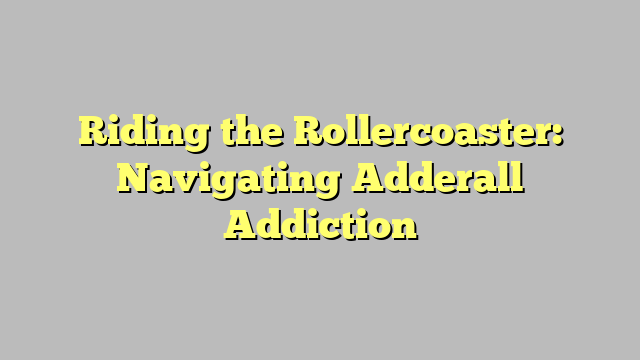Adderall addiction can take individuals on a tumultuous journey, akin to riding a rollercoaster filled with peaks and valleys. What might start as a well-intentioned remedy for attention-related challenges can quickly evolve into a gripping dependency that can cast shadows over various aspects of a person’s life. The allure of increased focus, energy, and productivity that Adderall promises can inadvertently lead individuals down a path of escalating use, where the initial benefits transform into a web of dependence and adverse consequences.
Factors Contributing to Adderall Addiction
Some contributing factors to the development of Adderall addiction include the easy accessibility of the drug and the misconception that it is a harmless study aid.
Furthermore, societal pressure to excel academically and perform at a high level can drive individuals to misuse Adderall in an attempt to enhance their focus and productivity.
Is Adderall Addictive
Additionally, the euphoric effects of Adderall, such as increased energy and confidence, can lead to its repeated use and eventual dependence.
Effects of Adderall Addiction
Adderall addiction can lead to serious physical and mental health consequences. Prolonged use of Adderall at high doses can result in increased tolerance, dependency, and withdrawal symptoms when trying to stop. Individuals may experience insomnia, changes in appetite, and mood swings as a consequence of their addiction.
Long-term Adderall abuse can have detrimental effects on the cardiovascular system. It may cause high blood pressure, irregular heart rate, and even increase the risk of heart attack or stroke. Such risks highlight the importance of seeking help and intervention for Adderall addiction to prevent further damage to one’s health.
Aside from physical effects, Adderall addiction can also impact one’s relationships, work, and overall quality of life. The constant need for the drug can lead to neglect of responsibilities, isolation, and financial strain. Seeking support from loved ones and professional treatment options are crucial steps in addressing Adderall addiction and its consequences.
Treatment Options
Adderall addiction can be a challenging journey, but there are effective ways to address it. Seeking professional help is crucial in overcoming this addiction. Therapy sessions, both individual and group, can provide the necessary support and tools to break free from the cycle of addiction.
Medication-assisted treatment is another option for those struggling with Adderall addiction. Under medical supervision, certain medications can help manage withdrawal symptoms and cravings, making the recovery process more manageable. It’s important to work closely with healthcare providers to find the right medication plan for each individual’s needs.
In addition to therapy and medication, lifestyle changes can play a significant role in recovery. Engaging in healthy habits such as exercise, proper nutrition, and stress management techniques can support long-term sobriety. Building a strong support network of friends, family, and peers who understand and encourage recovery is also essential in the journey to overcoming Adderall addiction.


